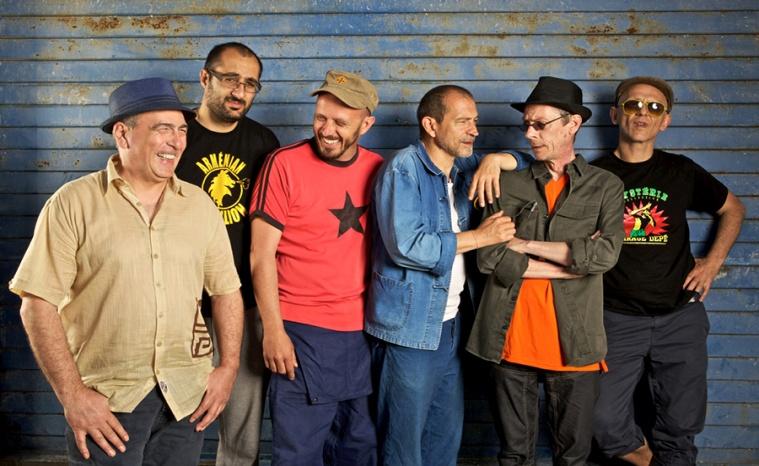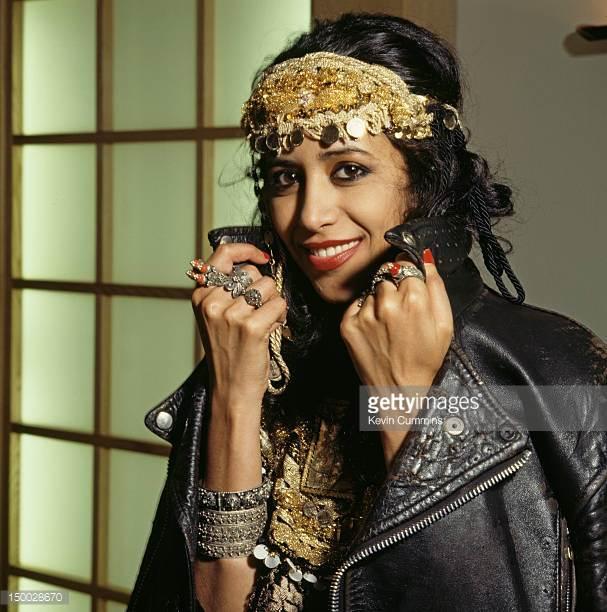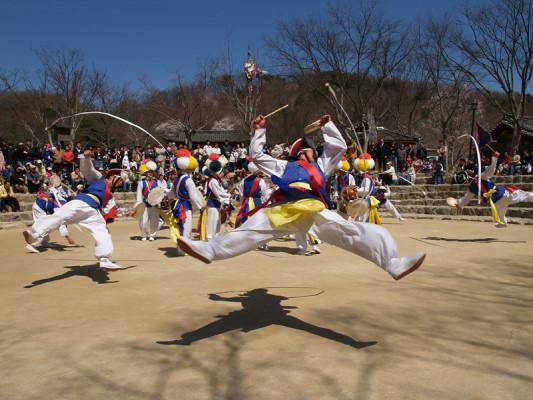
Identity Through the Eyes of Music
Music and Identity in a Globalized World
Music is one of the most beloved things on the planet. It is not only loved by most humans but it is also loved by animals and insects as well. Music is known for doing a lot of things, things along the lines of having relaxing and healing powers, the ability to treat mental ailments such as anxiety, serve as a source for spiritual and emotional uplifting. Most importantly music can be used as an instrument for not only individual self-expression, but also nationalistic self- expression and even as a global unifier.
Music seems to be a key to identity because it offers, to intensely, a sense of both self and the collective. Social groups only get to know themselves as groups (as a particular organization of individual and social interests, of sameness and differences) through cultural activity and in this case it would be music. Music constructs our sense of identity through the direct experiences it offers of the body, time, sociability, experiences which enable us to place ourselves in imaginable cultural narratives.
Rap Music: The language of the Oppressed Identity
Rap music consists of rapping, a rhythmic and rhyming speech that is often chanted. It first gained its popularity in the 1970’s in the United States, particularly in the Bronx (but it mostly starts in tough neighborhoods), New York among African American youth. Fast forward decades later and it is a phenomenon that is not only gaining increasing popularity all over the world, but especially in France. Rap has given the inhabitants of the Banlieus (French ghettos) a way to convey their identities to the rest of the world. These inhabitants of the Banlieus tend to be first and second generation immigrants who have been demonized and are often the victims of racist attacks and murders. Rap music has given these people an outlet to touch on many social, political and cultural issues that are prevalent in French conservative society . Rapping gives these inhabitants an outlet for expressing an alternate source of identity to the Frenchness from which they feel forcibly excluded. These French-residing rappers tend to use the name of their musical groups to convey strong cultural messages. The musical group Massilia Sound System proudly advertises the band’s place of origin and makes known how they identify. The main goal for these rap artists is to set the record straight and provide an insider view into the lives of people living in these Banlieues and their experiences with things such as poverty, insecurity, drugs and especially racism that they go through on a daily basis, as opposed to those who speak and write about the estates from the outside looking in. It is important for these artists such as Massilia Sound System to express themselves because it gives the average citizen of society an insider look upon the potential harsh realities that people might face. Music is the one outlet for artists like this to express their real life struggles.

Massilia Sound System
Music: An Outlet that Can Promote Nationalism
Next we move to Serbia. With the breakup of the Yugoslavia in the 1990s and a growing sense of isolation, first in one conflict and then in another, Serbia was banished from the so-called European mainstream. Popular music became important in not only creating a sense of Serbian nationalism, but also furthering it around the world. Songs in Serbia tend to embody tradition and it has served as a powerful cultural resource for nationalism since the 19th century. Songs in Serbia articulate the historical memories, legends, symbols and traditions of the people. One of the most important things historically for Serbia was the Battle of Kosovo. The Serbian people find great pride in the battle of Kosovo and so in the 19th century music, ballads and folk songs about this battle were made by “national awakeners” and thus now serve a source of common culture in Serbia. During the period of the Balkan War and First World War, popular music of that period gave voice to an ethnic identity characterized by a sense of uniqueness in Serbia. Patriotic songs celebrating Serbia’s trials, tribulations and victories experienced in the various wars etc. that Serbia had been in have taken on almost sacred aura. The songs embody the Serbian qualities of heroism, pride, aggression, stubbornness, the conviction that they have been victimized and their belief that they will ultimately have victory.
https://www.youtube.com/watch?v=njTmtSXtS_I (Tamo Daleko)
One of the most famous and nationalistic songs in Serbia is “Tamo Daleko. It became a potent symbol of Serbian cultural and national identity. The song portrays a sense of nationalism in that a father and son give up their lives for the nation.
Of the most popular music to come out of Serbia, Turbo Folk has to be the most famous for promoting nationalism. Journalist Peter Morgan as “the music of isolation”, while journalist Robert Black described the singers of Turbo Folk as the “balladeers of ethnic cleansing”
The Collective Music of Nations: A Global Aspect
Music can lead to competitions on a world stage that can promote unification, and racial and ethnic inclusivity. The Eurovision Song contest (the Olympics of Music) in particular is a music competition that takes acts from each country in Europe and has them compete on the world stage. Each country doesn’t even have to perform songs from their countries; they can perform their versions of songs from different countries. An example of this was when “Estonia’s “Everybody”, used a pan- Caribbean dance hall sound” in the song they performed during the competition. This promotes a global collectiveness (different countries bonding over a common love for music), while also promoting an appreciation of other cultures. Not geographically connected to Europe, Israel is musically, this is in at least one way connected, to the world beat. This evident by the career of the country’s most famous international star who won the completion, Ofra Haza. She launched a career that took her farther and farther away from the long tradition of Yemenite- Israeli singers who had emphasized the Easterness of Israeli popular culture and instead went with a more Westernized form of music. This shows how through globalization, different music styles have been influential to different artists.

Ofra Haza
Gukak and K-POP
There is a famous Korean expression ‘온고지신(溫故知新)’ which means, review the old and learn the new. Koreans emphasis on reserving the old and embracing the new. As a result, not only they advertise themselves in the world by K-POP music but also they preserve their traditional music which is their identity.
One of the efforts that South Korea is making to preserve the traditional music is the Cultural Properties Protection Law. South Korea designate cultural assets and protect them. The cultural assets include not only tangible cultural assets like buildings but also intangible cultural assets such as Korean Classical Music also called Gukak. To protect Gukak, they support holders of Gukak to hand down to others so that it can be preserved and be passed down. Moreover, in South Korea there are Gukak national middle school and Gukak national high school which are specialized in Gukak. They foster the holder of Gukak and contribute to the development of Gukak. Not only for the protecting expert to preserve Gukak there are variety ways for public to assess and enjoy the Gukak. If you walk around the festivals in South Korea you can easily find any performance of Gukak. Especially Samulnori, Korean traditional percussion quartet is famous for giving rise to interest. Furthermore, almost all university, high school even, some middle school have clubs that play Gukak. In this way South Korea tries hard to preserve and develop their own traditional identity.
5 years ago, Korean pop culture, which were mostly idol, drew whole world’s attention. “Gangnam Style” from PSY was the reason. And the dance move, which considered quite funny for foreigners, hit the world. South Korea’s actual mainstream is the opposite of “Gangnam Style”, so it was not that popular in South Korea. However, it supported an idea that South Korea should develop k-pop as a tourist business. From 90s til now, idol dance group is the mainstream of South Korean pop culture. Over 100 teams debut every year. Intense choreography, which is the trademark of idol groups, is quite different from South Korea’s traditional songs. South Korea’s traditional songs contain the emotion of deep resentment, for that reason, lyrics are very important in Gukak, which is South Korean traditional music. On the other hand, in idol songs, lyrics are not that important besides addicting. And maybe this is why foreigners can approach to k-pop much easier. They can enjoy idols’ performance, even if they don’t understand Korean. The government is making the best use of this for promoting Korean culture by making songs with other languages in same melody.
The fever of k-pop will not disappear easily. However, each period has its trend, addictive songs and dance moves are no more than just current trend. At this time, some musicians realize this and try to combine K-POP and Gukak. Not for just musicians, but dancers who won international b-boy contest used Gukak for their performance to promote South Korea. People have no doubt that we should use Gukak to promote “A Real South Korea”. Combining current trend and traditional Gukak is the great example that using nationalism to globalization.

Samulnori
Music is a truly beautiful thing. Music is also not just simply Music. It is a powerful tool that with the increase of globalization can continue to change the world.
Written By:
Kristine Chukwuma
Erin Gerber
Tereza Pistanska
Daseul Kim
Myunghwan Kim
Discussion Questions:
Do you think that having national music is truly a good thing?
Do you think that by the globalization of world music countries lose their cultural uniqueness and national identity?
Do you think it is appropriate for laws to be made in certain countries that limit the freedom of one's speech when writing a song?
The French Government has been known to complain about the prevalence of Rap music in French society, do you think that is fair for them to complain?
In Korea the K-pop serve as a connection with globalized world and protection of the traditional music, should more countries try to protect their identity in this way?
References:
Ian Biddle & Vanessa Knights, Music, National Identity and the Politics of Location:
Between the Global and the Local. Ashgate 2007, 93-113 (France) and 161-178 (Serbia).
Simon Frith, “Music and Identity”, in Stuart Hall & Paul Du Gay (eds.), Questions of
Cultural Identity. Sage, 1996, 108-127.
Martin Stokes, Ethnicity, Identity, and Music: the Musical Construction of Place Oxford
1994, 1-27 (introduction) and 61-70 (National Anthems, Chopin).